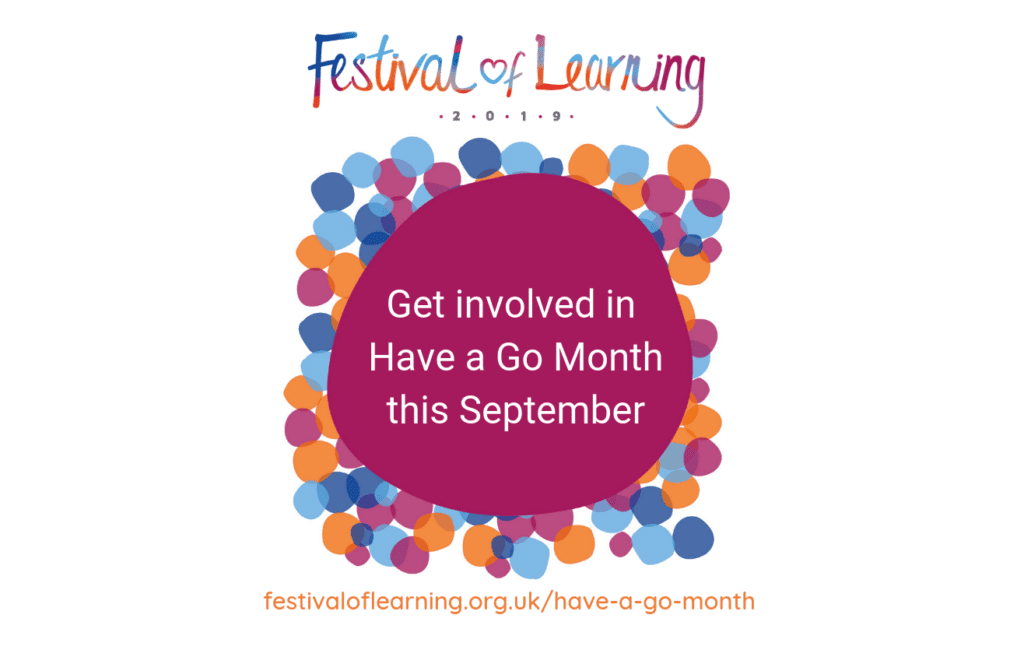The power of taster sessions and ‘have a go’ events to help adults get back into learning #LoveToLearn

The argument for lifelong learning has never been so compelling.
The benefits of adult learning are well-known – for the individual, their family, their employer and wider society.
You only have to take a look at this year’s Festival of Leaning winners’ stories to see how transformative learning can be at any age or life stage.
At the same time, the data tells us that the number of adults engaged in learning is at a 20-year low, and disproportionately so for older adults and those furthest from the labour market, such as those with caring responsibilities. To counter this downward trend, it is vital that we understand people’s motivations, barriers and life circumstances, and develop suitable provision in response.
Recent L&W research does just this. Learning at Life Transitions explores what influences adults at two important life transitions – retirement and returning to work after having children – in their decisions to take up learning.
Overall, the research shows that a change in priorities and circumstances is a dominant feature of transitions.
Change can prompt a second look at the decisions and actions that shape a person’s life course. Routines alter, new things become important and new opportunities can open – often involving education. So, transition stages present an opportune window to engage more adults in learning.
However, for adults who are considering returning, or who have recently returned to work after looking after children, a lack of confidence in their ability to learn successfully is a significant challenge.
This hurdle is often heightened for those who have not recently been in education and have taken an extended period off work to care for children. Many find the idea of learning appealing and see the potential benefits, but taking those first steps can be, in their words, ‘overwhelming’ or ‘daunting’.
These concerns, therefore, are given more importance than the potential outcomes and deter adults from learning. The learners we spoke to empathised, explaining that their decision to go back into education had been tempered with self-doubt and concerns over their capabilities.
So what had made them take that step? What works for those adults who lack confidence to reach that ‘tipping point’ in their decision-making process where the benefits outweigh the costs?
For many, a taster course is the answer.
Taster courses are short, trial sessions that are free to access and give adults the opportunity to sample learning without the obligation of committing to a full course.
They are therefore an ideal opportunity for adults who are furthest away from employment or education as they are less overwhelming.
Moreover, learners can access a variety of topics that might suit someone who is unsure what they’re interested in, where their skills lie, or the direction they want to take.
Taster sessions and learning activities that help adults to take that first step and discover the benefits of learning as an adult are central to Festival of Learning’s Have a Go Month.
Running throughout September, Have a Go Month encourages hundreds of adult education providers to put on such events.
Given the data on current participation trends, and the role this stepping-stone approach can play in supporting adults into learning, getting more providers involved in Have a Go Month has never been so important.
Hazel Klenk, Researcher, Learning and Work Institute
Register your taster sessions, and let us know how your organisation is getting involved in supporting adults to enjoy the benefits of learning, this September.











Responses